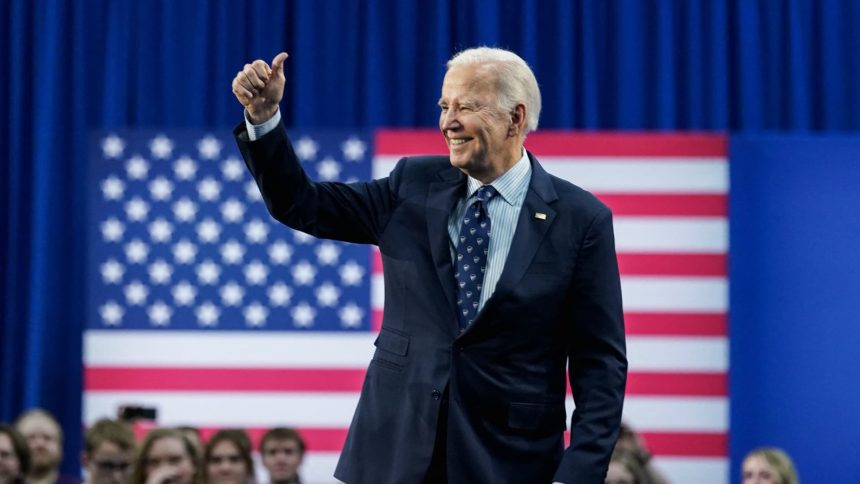President Joe Biden may try to forgive student debt again as early as next month, in a sweeping redo effort that could impact tens of millions of Americans.
The Biden administration’s attempt to deliver the aid could come roughly 14 months after the Supreme Court blocked it from carrying out its first student loan forgiveness plan. Just hours after the justices announced their ruling in June 2023, Biden vowed to find a new way to reduce or eliminate people’s education debt.
Despite the Republican-led legal challenges that have so far stymied the president from implementing wide-scale student loan relief, his administration has still managed to cancel more of the debt than any other before it.
Mainly through fixes to long-troubled loan relief initiatives, the Biden administration has now approved nearly $169 billion in loan forgiveness for roughly 4.8 million people.
Its new plan is expected to reach at least 25 million more people.
Relief could come as soon as next month
4 groups of borrowers expected to qualify
With the hope that this aid package survives the inevitable next round of legal challenges, the Education Department revised its forgiveness plan to be more targeted than its first.
In its email to borrowers, the department lists four categories of eligibility. Those are:
- Borrowers who owe more than they did at the start of repayment.
- Those who entered repayment on their undergraduate loans on or before July 1, 2005, or, if they have graduate loans, on or before July 1, 2000.
- People who are already eligible for student loan forgiveness under one of the government’s existing programs but just haven’t yet applied.
- Students from “low-financial value” programs.
Republicans may try again to stop relief plan
For critics of broad student loan forgiveness, Biden’s new plan looks a lot like his first.
After Biden touted his revised relief program, Missouri Attorney General Andrew Bailey, a Republican, wrote on X that the president “is trying to unabashedly eclipse the Constitution.”
“See you in court,” Bailey wrote.
Missouri was one of the six Republican-led states — along with Arkansas, Iowa, Kansas, Nebraska and South Carolina — to bring a lawsuit against Biden’s first sweeping debt relief effort.
The red states argued that the president overstepped his authority, and that debt cancellation would hurt the bottom lines of lenders. The six conservative Supreme Court justices agreed with them.
Once the Biden administration publishes its new student loan forgiveness plan in October, more legal challenges are inevitable, Kantrowitz said.
“Lawsuits seeking to block the final rule will follow soon after it is published,” he said.
A recent Supreme Court ruling could also make it harder for Biden’s revised plan to survive those broadsides.
The high court in late June overruled the so-called Chevron Doctrine, a 40-year-old precedent that required judges to defer to a federal agency’s interpretation of disputed laws. The 6-3 ruling, which split the conservative-majority court along ideological lines, is expected to undermine the federal government’s regulatory power.
Read the full article here




